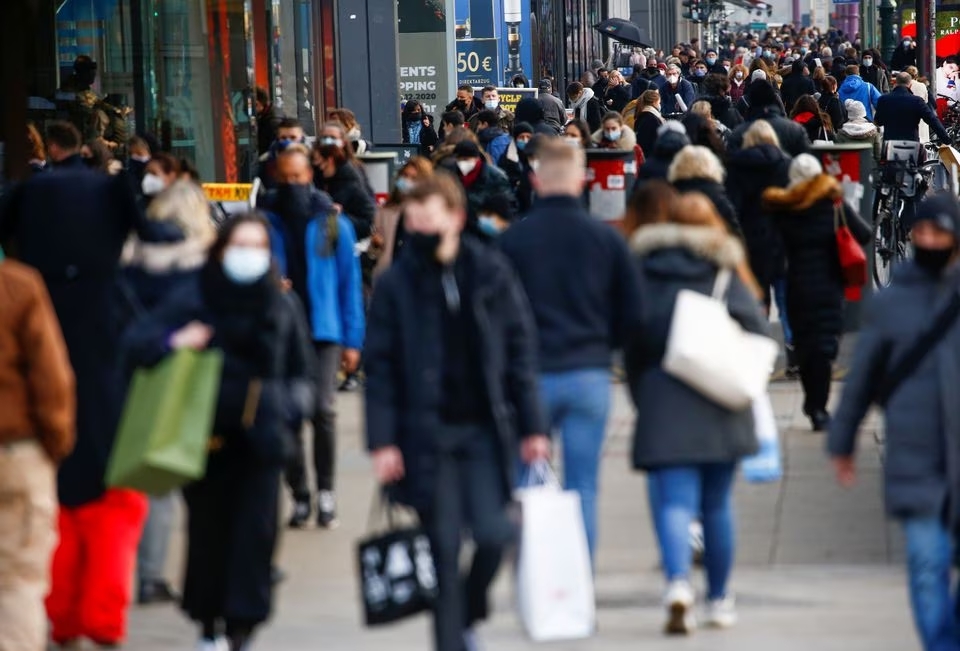BERLIN -- The German economy contracted in the first quarter of 2023 compared with the previous three months, thereby entering recession, data from the statistics office showed on Thursday.
Gross domestic product fell by 0.3 percent for the quarter when adjusted for price and calendar effects, a second estimate showed. This follows a decline of 0.5 percent in the fourth quarter of 2022. A recession is commonly defined as two successive quarters of contraction.
The first estimate had shown GDP stagnating in the first quarter and Germany skirting a recession.
Year-on-year, GDP fell by 0.5 percent when adjusted for price and calendar effects.
"Under the weight of immense inflation, the German consumer has fallen to his knees, dragging the entire economy down with him," Andreas Scheuerle, an analyst at DekaBank, said.
Household consumption was down 1.2 percent quarter-on-quarter after price, seasonal and calendar adjustments. Government spending also decreased significantly by 4.9 percent on the quarter.
"The warm winter weather, a rebound in industrial activity, helped by the Chinese reopening, and an easing of supply chain frictions, were not enough to get the economy out of the recessionary danger zone," ING's global head of macro Carsten Brzeski said.
By contrast, investment was up in the first three months of the year, following a weak second half of 2022. Investment in machinery and equipment increased by 3.2 percent compared with the previous quarter, while investment in construction went up 3.9 percent on quarter.
There were also positive contributions from trade. Exports rose 0.4 percent, while imports fell 0.9 percent.
"The massive rise in energy prices took its toll in the winter half-year," Commerzbank's chief economist Joerg Kraemer said.
A recession could not be avoided and now the question is whether there will be any recovery in the second half of the year.
"Looking beyond the first quarter, the optimism at the start of the year seems to have given way to more of a sense of reality," ING's Brzeski said.
A drop in purchasing power, thinned-out industrial order books, aggressive monetary policy tightening, and the expected slowdown of the U.S. economy, all argue in favour of weak economic activity.
Following Wednesday's decline in the Ifo business climate, all key leading indicators in the manufacturing sector are now falling, Kraemer from Commerzbank said.
The German Bundesbank, however, expects the economy to grow modestly in the second quarter as a rebound in industry more than offsets stagnating household consumption and a slump in construction, according to a monthly economy report published on Wednesday.




















































